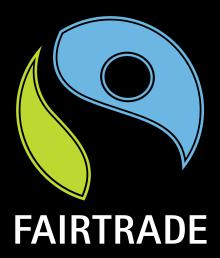Values Based Decision Making
Hello everyone. First off thank you for reading this. I wake up excited every day to work on this project and consider myself extremely privileged for the ability to do so.
Mission
This weekend I spent some time thinking about where we’ve come from and where we’re going. I believe we’re still in a formative stage of what the mission is, but for now providing a resource that gives options, education, and assistance for military members in transition to a new career.
I’ll consider that we are reaching this goal when we hear that the podcast provided the information needed to exit the military and start something new. This by no means advocates for exit, but staying in service due to lack of options or know how is not something I can personally accept.
Building Listenership
This week will be our second full month running the podcast and 10th episode. 467 all time plays with an estimated audience of 41 according to the host analytics (who knows the accuracy).
I have a goal of reaching an estimated audience of 1000 by end of year which sounds just crazy enough for me. We’ll see if it wasn’t crazy enough.
Podcast Episode 5 - Matt Bishop
High Impact Segment 44:47 - 58:35
The highest impact of this episode is actually a lesson in coffee economics. Matt starts by explaining what a typical supply chain looks like for coffee.
The problem with this system is that each stage in the supply chain wants their cut. The more parties involved means less money..for someone. Matt correctly points out you don’t see large fluctuations in the price of coffee at the grocery store despite so many moving parts. Because the price impact isn’t seen at the consumer level, that means the weakest link, the party with the least leverage, get’s squeezed.
Because livelihood of farmers around the world is staked on selling their yearly crop, they have to sell regardless of what people will pay. Your ability to pay $10 for a pound of coffee 365 days a year impacts that farmer.
You might say, why have so many people involved? Simply put, it’s expensive.
Large scale coffee operations like Starbucks have the capital to vertical integrate (be involved in the process from the beginning to end), however the complexity and capital requirements act as a barrier to entry for farmers selling direct and most third parties don’t want to consolidate the logistics for what is mere pennies.
Programs like Fair Trade supposedly promote equity and sustainability by implementing a price floor for famers to be paid despite commodity prices dipping below. Beneficial on the downside, however when prices of coffee rise, they don’t participate in the upside because of “value added services” in the supply chain.
Enter Matt Bishop.
“I find the coffee industry to be disingenuous and jaded; I find consumers are duped in thinking that all these roasters have this amazing caring outlook for producers….Roasters and importers and exporters are jaded in…allowing for that duping of the consumer.”
Matt’s company Iron Mule, with its Direct Access brand, is cutting out unnecessary entities within the supply chain and going straight to the farmer. Creating a relationship directly between the farmer and the grocery store shelf allows Iron Mule to show farmers what the actual costs are and gives them the benefit of pricing power. Matt mentions in the show that the farmers have no idea what happens to their coffee or the costs involved after them. Like I said, no leverage.
Matt embodies conscious capitalism, a philosophy that businesses should serve all stakeholders, including the environment. This is seen not only in his coffee business, but in his time spent overseas.
“In 2006, I would come across Iraqi civilians after we had just gotten shot at or an IED had gone off and we had to search homes…but I had the lens to be able to see that maybe they were just people caught in the middle. A lot of people lack that lens…”
You can see in the things that Matt says and does that he is not only aware of the second and third order effects of our actions, but implements positive change to give equity to people who need it most. That is true leadership to me.
If you live in Boise Idaho, go visit Iron Mule coffee. If you aren’t local, you can check out what Matt and his team are doing and order coffee on their website.
This Week on the Podcast
This Wednesday, 2.2, we speak with Josh Duntz. Josh works at Shift, a company working to disrupt how veterans transition out of the military. They provide job placement with tech companies as well as a DoD sponsored skillbridge program.
Food for Thought
“What you do is what matters, not what you think or say or plan.” - Jason Fried
🤘SC





